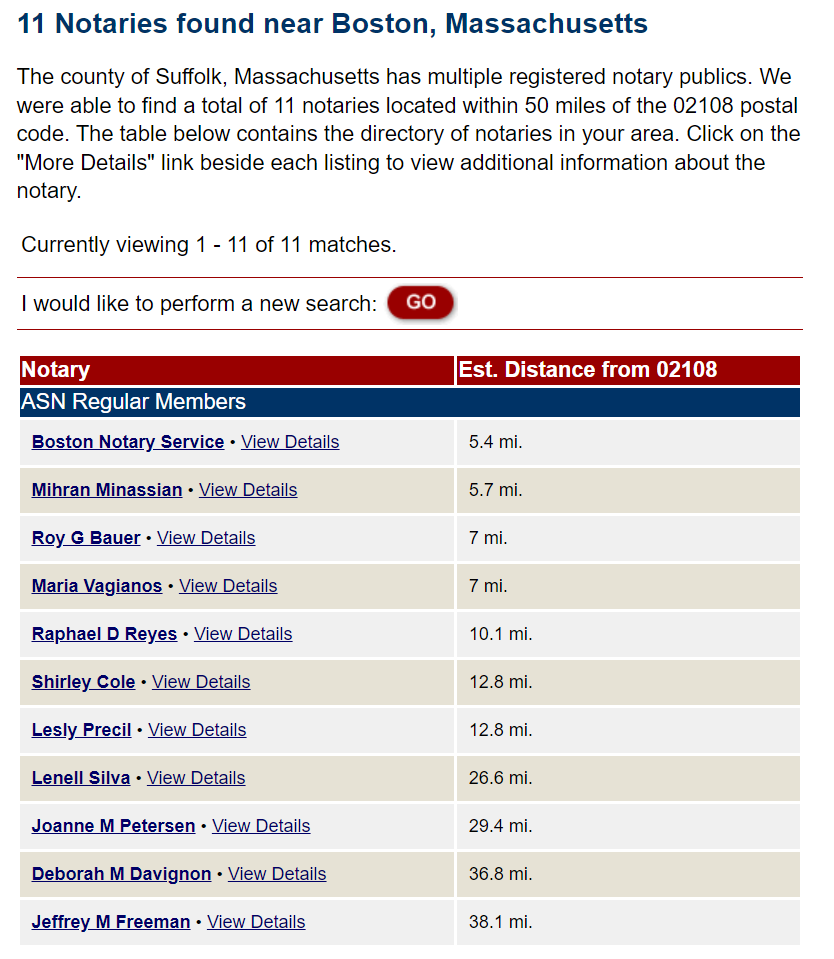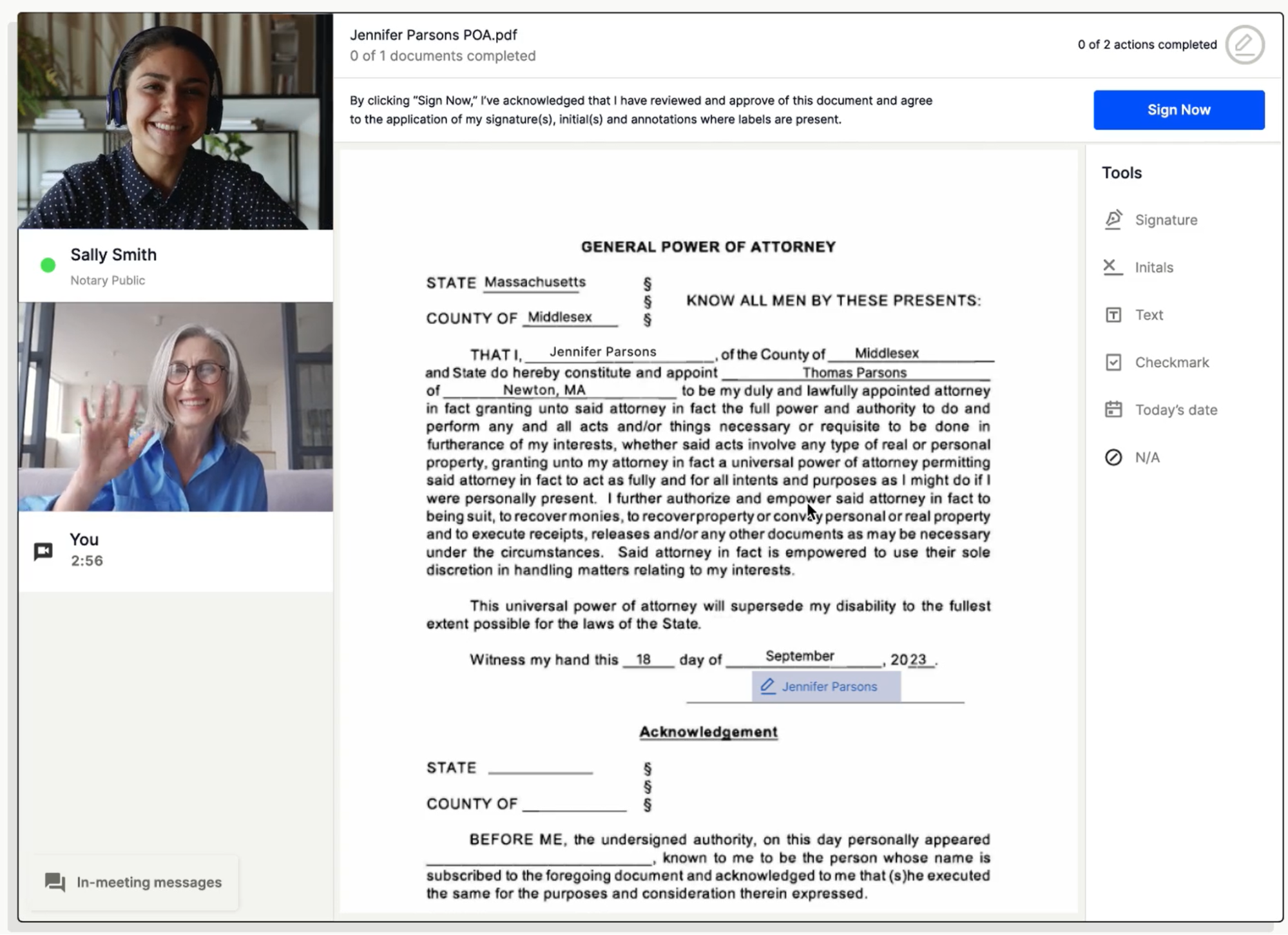Helpful Summary
- Overview: We explain how to get your documents notarized using traditional in-person and remote online notarization (RON).
- Why you should listen: We have helped over 61,000 businesses and individuals streamline their document signing processes.
- Why it matters: Notarization is essential for authenticating documents and preventing disputes. Plus, it’s often legally required.
- Action points: We recommend using established notaries and online services. Also, make sure your state (or country) allows RON before you opt for this method.
- Further research: Check out the SignWell blog for more guides and how-tos.
Wondering How to Get Your Documents Notarized?
Many people go their whole lives without ever needing to notarize a document. So, when you find out that you do need a document notarized, it can be confusing and overwhelming.
Don’t worry, though—getting your documents notarized is a simple process that requires basic knowledge and the right resources.
In this SignWell guide, we walk you through the process of getting your documents notarized using a few different methods. Whether you prefer face-to-face verification or the comfort of remote notarization, we’ve got you covered.
Why Listen to Us?
At SignWell, we provide secure, user-friendly electronic signature solutions that help businesses and individuals slash document turnaround times. While we don’t offer online notary services, we have a ton of experience with the process and can help guide you toward the best solution for your needs.
What Is Notarization?
Notarization is an official process that:
a. Determines the authenticity of a document
and…
b. Confirms the identity of any signatories
It’s performed by a notary public—a government-authorized official who acts as an impartial witness to the signing process. They check the document, verify the identity of all signers, and then provide a stamp or seal to confirm that the document is legitimate.
Why Is it Important to Notarize Documents?
- It’s a legal requirement. The most common reason people get documents notarized is because they have to. Many U.S. documents, such as real estate deeds, wills, and powers of attorney, must be notarized to be legally binding.
- It helps prevent fraud. Notarization is an added layer of security that helps prevent fraudulent activity. By verifying the identity of all signers and ensuring the document is legitimate, notarization can help protect against forgery or false claims.
- It adds credibility to the document. A notary public is considered a neutral third party in the signing process. Their stamp or seal on a document adds credibility and can make it more likely to be accepted by legal authorities.
How to Notarize a Document
In-Person Notarization
In-person notarization involves an in-person meeting with a notary public. The easiest way to find a nearby notary is to look up your ZIP code on the American Society of Notaries website. You’ll get a list of notaries ordered by distance and contact information.

All parties that need to sign the document must be physically present at a meeting with the notary. This means scheduling either one meeting with everyone or multiple meetings if the parties aren’t available at the same time.
You’ll need to bring the following:
- Government-issued photo ID (e.g., driver’s license, passport, state ID card)
- The document to be notarized (completely filled out but unsigned)
- Any required witnesses (if the document requires witnesses in addition to the notary)
- Payment method (cash, check, or card)
- Additional documents (if required)
- Appointment confirmation (if required)
The actual process will typically work like this:
- Present your ID. The notary will need to verify your identity before proceeding.
- Sign the document in front of the notary. This is an important step as it ensures that the signature is being witnessed by a neutral third party.
- Take an oath or affirmation. You may be required to swear or affirm that the information in the document is true and accurate.
- Pay for the service. Notaries can charge a fee for their services, so be sure to have payment ready.
- Receive your notarized document. Once you’ve completed all the steps, you will receive your notarized document from the notary.
Online Notarization (RON)
Remote Online Notarization (RON) uses modern audiovisual tools, identity verification, and digital audit trail technology to notarize documents without an in-person meeting. It’s a modern, convenient method for obtaining notarized documents.

There are a few well-known online notary services:
You can also contact a notary public on freelancing sites like Fiverr to schedule a meeting. After verifying your ID, you can use a tool like SignWell to sign your document in the presence of the notary over a video call.
The steps involved in RON are the same as traditional notarization, but everything is performed remotely, making it faster and more secure. For example, video conferencing software replaces the meeting, and digital ID verification confirms the identity of all parties.
Best Practices in Notarizing a Document
When notarizing a document, it’s crucial to follow a few best practices:
- Do not sign the document beforehand. You should fill out all fields except for signature and initial fields. These need to be filled out with the notary as a witness.
- Make sure notarization is required. Not all documents require notarization. In most cases, a secure e-signature tool like SignWell is legally binding in the US and internationally. Skipping unnecessary notarization can save you time and money.
- See if you need additional witnesses. Sometimes, a notary isn’t enough. Some states require additional witnesses to be present during the notarization process.
- Use a reputable notary service. There are many online notary services available, but it’s important to choose one with a good reputation and positive customer reviews. Be sure to verify their credentials and check for any past complaints.
- Understand the fees. Notarization isn’t free—make sure you understand how much each document will cost to notarize.
Conclusion
Notarization is an essential process that reinforces a document’s legality and credibility. It is also an essential anti-fraud measure that confirms the identity of the person signing the document. Whether traditionally or online, notarizing documents is now more straightforward and accessible.
Traditional notarization is done in person with physical documents, while Remote Online Notarization (RON) allows for notarization to be done remotely and digitally.
Ready to simplify e-signing? Try SignWell for free and see just how easy it can be.
Sign with a team that knows what you need.
Putting a signature on a document shouldn’t be hard. The SignWell mission? Simplify how documents get signed for millions of people and businesses.
Get Started Todaybusinesses served, so far...
total documents signed
customer support satisfaction